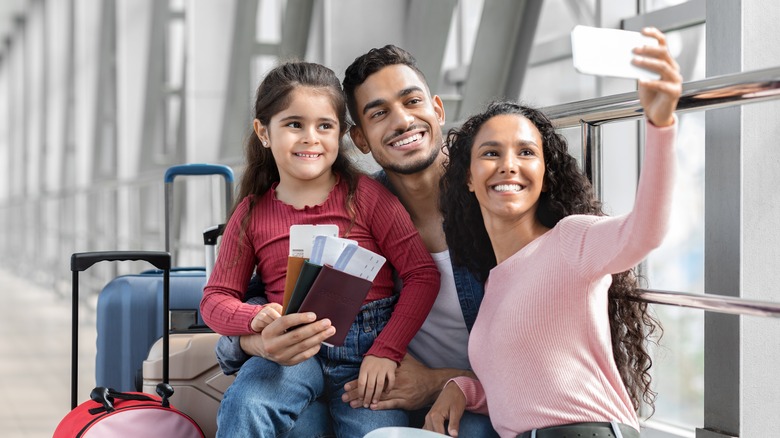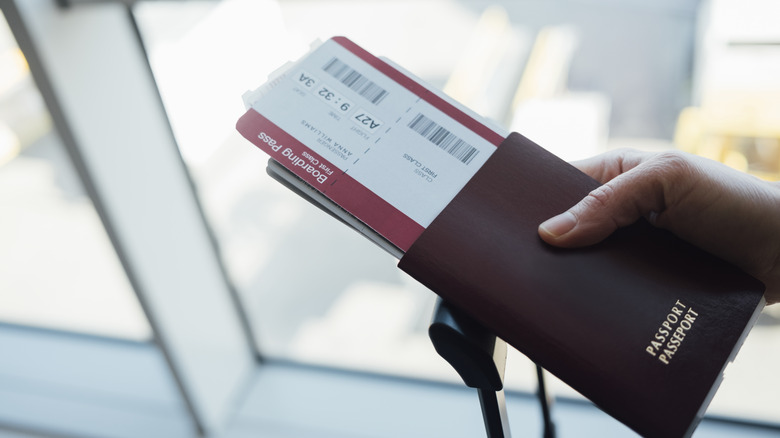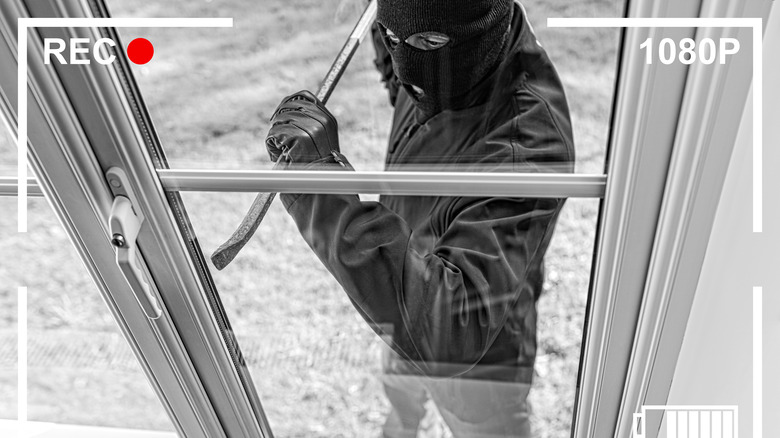Why You Shouldn't Share Photos Of Your Boarding Pass
The power of social media is hard to ignore in the modern world. These days, sharing what you're up to with your online followers, no matter how simple the task, can feel vitally important. Posting information about upcoming trips on a digital platform can seem as essential as packing your suitcase. Letting the world know where you're going is tempting thanks to the fact that doing so often requires nothing more than a photo snap and the touch of a button. Broadcasting your travel plans is quick and easy and can garner great responses in no time. However, when it comes to sharing photos of something like your boarding pass, it's important to put more of an emphasis on privacy than you might with other posted moments.
Photos of boarding passes shared online should be avoided at all costs. This is a good rule of thumb to follow in the name of safety while traveling. The rule applies to both printed boarding passes and digital versions on your phone.
While it can feel great to be connected to the world through social media, these same digital technologies can leave you more vulnerable to personal data hacking while traveling too. Posting a photo of your boarding pass provides hackers with a direct route to obtaining your personal information and creating havoc. While your address and direct phone number aren't listed on your boarding pass, other vital data leads to that information in just a few keystrokes of a hacker's hands.
A photo paves the way to personal info hacking
Using a single posted photo of your boarding pass on social media, hackers can quickly gain access to your full name and ticket number. Perhaps more dangerous is their access to your passenger name record (PNR) which is a printed code linked directly to your full booking report. Your PNR can be used by a savvy hacker to gain access to everything from your phone number and emergency contact information to your personal email address as well.
Unfortunately, the risks don't stop there. All a hacker needs is access to your PNR and your last name to successfully get into your flight booking and begin changing things at will. Your booking could be altered or even canceled remotely without a password with this information in hand. If you're someone who has worked hard to earn frequent flier miles, your PNR in the hands of a hacker means those miles could be reduced to zero.
The same goes for a hacker's access to any Global Entry information on your account, TSA PreCheck information, or even your personal redress number. It doesn't take long for that single boarding pass photo to lead to all kinds of problems. Your PNR can even be used by hackers to open credit cards, steal your identity, or process unauthorized purchases from afar leaving you with a financial mess to untangle.
There are risks beyond identity theft
The risks associated with sharing a photo of your boarding pass online shouldn't be overlooked, especially when it comes to hackers having a direct link to your personal information. According to the team at LegalJobs, those individuals who have social media accounts are automatically faced with a 46% higher risk when it comes to identity fraud than those without accounts. This certainly isn't to say you need to immediately delete your social media to stay safe. However, understanding the heightened risk of identity theft when sharing information on digital platforms is extremely important. It's also vital to be aware of the unintended information you're messaging out to the world.
Sharing a photo of your boarding pass can seem innocent enough as a traveler. For those with less-than-ideal intentions, it can be viewed as an "all clear" message online that you'll be out of town and your home will be unoccupied for a significant amount of time. This alone could be enough to increase the risk of break-ins at your property while you're away.
Giving the digital world access to your boarding pass through a posted photo could also be a risk to your personal safety. You're publicly broadcasting your current location, destination, flight, seat number, and airline all in one place. This can provide strangers with everything needed to track your whereabouts across the country or globe. This is always a risk, but something particularly important to avoid when traveling solo.


